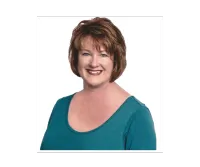Where to Begin When Caregiving Feels Like Too Much
You’re a Caregiver
(Even If No One Told You Yet)
Caregiving isn’t just hands-on support.
If you’re managing appointments, asking the doctor questions, coordinating help, paying bills, or even just lying awake at night worrying about what comes next, you’re caregiving even if you live far away. Even if you “just check in” over the phone. Even if you feel like you’re not doing enough.
Your presence, your voice, and your effort matter more than you know.
Here at The Aging Society, we help you step confidently into that role with tools, clarity, and the right words, so you can honor your loved one, protect your own well-being, and avoid the spiral of “what ifs.”
A Story That Might Feel Familiar
Emily sat in her car outside her mom’s house, hands still on the wheel, heart pounding.
Her mom had left the stove on again, this time with a dish towel too close to the flame. Nothing happened, but it shook her.
She knew things had to change. But when she brought it up over Sunday dinner, her brother rolled his eyes: “She’s fine.” Her sister changed the subject.
Now Emily was stuck in the middle, carrying her mom’s safety, her siblings’ denial, and her own fears.
What kind of care did her mom need? Could they afford it? And how could she convince her family without another fight?
If you’ve felt that weight, you’re not alone, and you don’t have to carry it by yourself anymore.
Start With Something Small:
One Small Shift
Start With Something Small: One Small Shift.
A simple daily email that makes caregiving feel lighter, starting today. Caring for an aging parent can feel like you’re juggling a hundred decisions at once, while still trying to keep the peace, protect your loved one’s dignity, and hold your own life together.
✅ A short story you’ll recognize from your own life
✅ One tool, script, or mindset shift that made life easier for another caregiver
✅ A small action you can take right now to make things lighter
It’s not theory, it’s what’s actually worked for hundreds of families. It’s short. It’s doable. And it’s the quickest way to start feeling less alone.
Everyone Carries Caregiving Differently
Some carry it all silently and never ask for help.
Some are tired of being the only one doing anything.
Some of us research everything before we make a move.
And some plan everything, then collapse when it all falls on them.
No matter how caregiving shows up in your life, there’s a place for you here.
You Are Here
Find The Path That Feels Right For You
For the Ones Who Need to Get It Right
Thoughtful tools for when the stakes feel high.
For the Ones Who Carry It All Quietly
Gentle support and scripts when only you notice.
For the Ones Who Are Tired of Doing It Alone
Real talk and relief when caregiving has become solo
For the Over-Responsible Ones
Practical systems and relief when burnout is looming.
Visit the Resource Center (All Access)
This isn’t just a collection of links. It’s a support system, designed to help you move forward with confidence, one decision at a time.
I was drowning in Google searches and family group texts going nowhere. The Aging Society helped me figure out not only what my mom needed, but how to get my siblings to listen. I wish I had found this sooner".
"Every other site overwhelmed me with too much information. This felt like someone walking beside me with calm, clarity, and a plan. The guides are gold, but the family tools? Life changing."
"This isn’t just a website. It’s a lifeline. From decision checklists to sibling support, it’s helped me feel less alone and more capable in every step of this journey.."
"I didn’t even realize I was a caregiver until I took the first quiz. Suddenly everything made sense, and I knew where to start. It was the first time I felt less alone in this whole process."
"Before finding this, I was drowning in group texts with my siblings and endless online searches. Now I have a plan, the right words to start conversations, and the confidence to take the next step."
"The tools here don’t just give you information—they make it feel doable. From the match guide to the family scripts, I finally feel like I can handle what’s ahead without losing myself in the process."
See Our Latest Blog Posts
Stay up to date with fresh insights and helpful tips in our latest blogs.
Whether you’re looking for guidance, real-life strategies, or just a little encouragement along the way,
our blog is here to give you practical support you can actually use.

Stuck in the ‘What Ifs’? A Caregiver’s Guide to Easing Constant Worry
"I wake up and immediately wonder, what changed overnight? Will she fall again? Will I get a call from the neighbor? What if this is the start of the end, and I miss it?"
These were the words of a woman during one of my consulting calls. Her voice cracked, not from exhaustion or frustration, but from something deeper: the mental weight of caregiving.
She wasn’t overwhelmed by the physical tasks. It wasn’t the heartache of her mom no longer remembering her name that broke her. It was the constant, gnawing fear. The vigilance that never shuts off.
If you're living with this kind of caregiving anxiety, I want you to hear this:
You are not alone. And you are not broken.
Why Caregiving Anxiety Feels So Overwhelming
When you're responsible for the well-being of someone you love, especially a parent, the stakes feel impossibly high. Each phone ring spikes your heart rate. Every new behavior triggers a silent alarm in your mind:
"Is this confusion or something more?"
"Do I call the doctor or wait?"
"What if I miss something important?"
This constant state of alert is not only emotionally exhausting, it's physically draining too. It leads to poor sleep, burnout, and that buzzy, ever-present tension that never quite goes away, even during your so-called "downtime."
And the truth is: your brain doesn’t shut off. Even during dinner. Even while trying to sleep. Because you're carrying the weight of two lives.
You’re Not Crazy. You’re Just Carrying Too Much.
Many adult children feel pressure to stay strong because their loved one is still "doing okay" on paper. But caregiving isn't just about errands and appointments. It's about a constant awareness of potential change.
Often, those changes aren’t big or sudden. They creep in. A forgotten medication here, an unsteady walk there. Denial complicates things. So does guilt. And the fear that maybe you're overreacting, or worse, underreacting.
This is why caregiving anxiety so often includes:
Guilt over not doing enough
Doubt in your own instincts
Deep emotional fatigue
You're not imagining it. You're reacting to real uncertainty. And that’s a heavy burden to carry alone.
3 Steps to Calm the “What If” Spiral
While the anxiety might not disappear, there are practical ways to make it quieter.
1. Name the Fear Write it down. Say it aloud. Get specific.
What exactly am I afraid will happen?
Often, our fears are vague shadows. Naming them gives you the power to either take action or consciously let them go.
2. Use a ‘Changes Checklist’ Track things like mood swings, appetite, wandering, or sleep patterns. That way, when something feels "off," you have a reference instead of relying solely on anxious instincts.
Need help getting started? Our Senior Living Starter Kit includes a ready-to-use checklist.
3. Get Clarity on Care Options Uncertainty fuels anxiety. Our $9 Clarity Quiz can help you answer:
"What level of care is appropriate based on what I’m seeing now?"
It’s a small step that brings big peace of mind.
Stuck in the ‘What Ifs’?
If you're reading this, it's because you care. Deeply. And that care shows up in a thousand invisible ways:
Noticing subtle mood changes
Adjusting your schedule around appointments
Lying awake wondering if you missed a sign
Please, give yourself permission to pause. To breathe. To ask for help. Because the most exhausting part of caregiving, that endless mental loop, doesn’t have to win.
With the right tools, support, and clarity, you can find steadier ground.
Did You Know?
A 2023 study found that caregivers who used structured checklists and clear care plans reported 40% lower anxiety levels than those who didn’t.
Caregiver FAQs
What is caregiving anxiety, and how is it different from general stress? Caregiving anxiety is a chronic worry linked to fear of health deterioration, emergencies, or making the wrong decisions. It’s often persistent and deeply emotional.
Can I have anxiety even if my loved one is doing okay? Yes. Anxiety often stems from the unknown, not just the present reality. It’s a response to unpredictability and responsibility.
What if my fears feel irrational? Your fears are valid, even if they seem illogical. Instead of dismissing them, try to explore their roots. Journaling or talking with a counselor can help.
When should I seek professional support? If caregiving anxiety interferes with your sleep, relationships, or daily functioning, reach out to a therapist or senior care coach.
Caregiver Quote:
"I used to think I was just bad at handling stress. Now I know it's because I was trying to do everything alone."
© 2025 The Aging Society. All rights reserved.
For families navigating senior care, find clarity, compassionate support, and trusted resources for senior care.
It all starts with One Small Shift.
